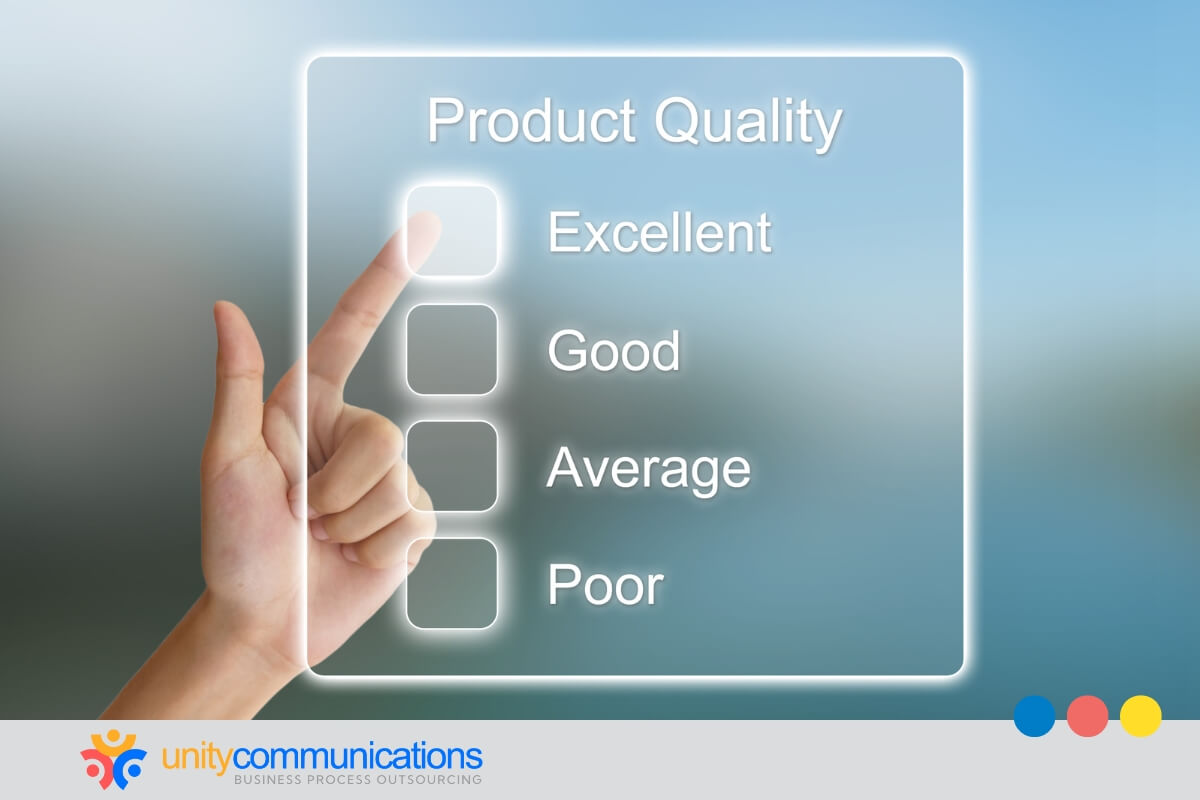IN THIS ARTICLE
Table of Contents
In recent years, digitalization has propelled businesses forward. Organizations prioritize developing applications to streamline their operations and enhance customer interactions. However, not every business can maintain an internal software development team.
Consequently, business process outsourcing (BPO) for software development projects has experienced substantial expansion. The primary motivations behind companies opting for third-party software development are cost management and expedited project delivery.
Before finding a provider, a comprehensive understanding of what outsourcing means in the software development market is crucial. This article discusses software development outsourcing and how it impacts your business. Keep reading!
Key Benefits of Outsourcing Software Development

What is BPO in software development? Outsourcing in software development involves contracting out specific business processes, such as coding, testing, quality assurance (QA), maintenance, and support, to external vendors or specialized companies.
Establishing a software development infrastructure requires hiring developers and renting additional space, which are significant costs for businesses, particularly for startups. Opting to offload development work to a software development outsourcing company is a more cost-effective alternative than maintaining an in-house team.
Let’s examine the key benefits of outsourcing software development.
Utilizing Cutting-edge Technologies
Adopting the latest technology stack is crucial for clients in information technology (IT). To achieve success, they need to leverage advanced technology and specialists with extensive expertise in the specific direction of the software project.
Given the rapid technological changes, client companies might employ outdated or unoptimized software programs and devices. Outsourcing then becomes a necessary solution to tap into modern technology stacks.
Outsourcing offers access to specialized resources and expertise in various development technologies, including cloud computing, mobile app engineering, DevOps automation, artificial intelligence (AI), and blockchain technology.
By opting for software outsourcing companies, clients can expect the delivery of projects and solutions that align with the latest technical advancements and their requirements.
Granting All Essential Intellectual Property Rights
Another notable benefit of outsourcing in software development involves gaining ownership rights over the created software. BPO companies provide all essential information to facilitate the complete transfer of ownership for the developed code and information systems to the clients.
This means that all software-related rights, including copyrights, patents, and other IP rights, belong to the client. This is crucial for businesses as it protects their investment and allows them to leverage the software without legal complications.
Having extensive experience collaborating with successful startups and large corporations, a reputable outsourcing provider can consistently deliver optimal intellectual property provisions to clients. This service is a vital aspect of BPO that has garnered positive feedback from client companies.
Enhancing Product Quality
The quality of modern software products is crucial for effective operation. Since many information systems now cater to millions of users, even minor software malfunctions can result in significant issues.
BPO teams are dedicated to delivering quality in software outsourcing. They offer a comprehensive software development cycle, encompassing manual and automated testing. Seasoned architects and developers employ test-driven development (TDD) methodologies to guarantee high-quality software products.
In software development, TDD is an approach whereby developers write tests before the actual code. The TDD process typically involves the following iterative cycle:
- Create a test that defines a function or improvements in a function. The test should initially fail since the code to satisfy the test has not been written.
- Execute the test to verify that it fails, confirming that the test is effective in catching the absence of the expected functionality.
- Implement the minimum amount of code required to make the test pass. The goal is to fulfill the immediate need indicated by the test.
- Execute all previously written tests to ensure the newly added code does not break existing functionality.
- Refactor to improve the code’s structure, design, or efficiency without altering its behavior.
- Continue the cycle by writing additional tests for new features or modifying existing tests to accommodate changes.
TDD promotes several benefits:
- Early detection of defects. Issues are identified early in development, making them easier and cheaper to fix.
- Code confidence. The comprehensive test suite assures developers that changes will not introduce unintended side effects.
- Design improvement. TDD often leads to better software design as developers focus on creating modular and testable code.
- Documentation. Test cases serve as a form of documentation, providing insights into the expected behavior of the code.
- Change. TDD makes introducing modifications or new features easier by ensuring that existing functionality is not compromised.
Outsourcing vendors also extend their services to testing intricate software systems. Experienced developers craft sophisticated and efficient automated tests for diverse programming languages and frameworks.
The outsourced DevOps team contributes to the seamless functioning of the clients’ information systems in cloud environments. This approach ensures that essential quality standards are fulfilled for the clients.
Collaborating With a Managed Team
Improvements in time and cost savings are not solely attributed to individual developers; effective management is also a significant contributor.
Building and managing an in-house team, particularly finding the right project manager, can be challenging and expensive for any company. On average, a project manager earns $97,052 per year. However, outsourcing in software development significantly alleviates the burden of management, as each team comes with a manager.
Outsourcing partners are also dedicated to staying abreast of emerging technology, regulatory changes, and industry updates. Their senior developers boast proficiency in various domains.
While project guidance remains essential, the outsourcing partner shoulders the managerial responsibility. This arrangement not only lightens the load on your company but also frees up your time by eliminating the need for constant updates, allowing you to focus more on the project’s overarching direction.
Leveraging Adaptable Staffing Options and Team Structure
A product development cycle’s duration and resource requirements can be unpredictable. Market trends, customer expectations, and project scope can influence them. Maintaining precise control over staffing decisions is crucial when dealing with intricate software projects and a comprehensive list of requirements.
Business owners can modify their team size and structure with a software outsourcing team. The flexibility allows them to scale up or down at different project stages, facilitated by the option to engage developers on a nonpermanent basis.
Whether opting for a dedicated development team for long-term projects or temporary staffing for specific phases, adaptability helps control costs and avoid overstaffing. It also protects the in-house team from excessive workload and burnout caused by labor shortages.
Common Challenges of Outsourced Software Development

When considering outsourced software development, clients might be wary of associated risks. Despite its vastness, the software development outsourcing industry presents several challenges.
However, you can acknowledge, analyze, and mitigate these issues in future collaborations. Here are some challenges related to outsourced software development and strategies to circumvent them.
Consistency in Code
Code uniformity is imperative for creating a high-quality software program. It makes bug fixes easier, even after the outsourcing contract ends. The third-party provider’s use of a different programming language can make maintenance more challenging. Clients might need to rehire the BPO organization for continuous support.
To address this issue, develop software using a single language and adopt a consistent architectural structure. This approach simplifies integration and maintenance, preventing unnecessary expenses on post-development support. Code uniformity serves as a cost-effective measure in the long term.
Post software development, establishing measurable deliverables is crucial for maintainability and clarity. These qualities are fundamental to code quality and can be assessed through functional and unit testing.
Incorporating peer-to-peer reviews as part of the testing process, especially if you have an existing software development team, ensures thorough evaluation before approving the development.
Loss of Data
Among the most severe issues of outsourcing software development is potential data loss. Data holds immense importance, so any loss is deemed unacceptable. Given the substantial volumes of data involved in software development, encountering costly data losses is a prevalent concern.
To mitigate the risk of data loss, establish robust backup systems. Implementing a comprehensive security protocol for in-house and BPO teams is also crucial. This approach provides a virtually foolproof solution, ensuring that concerns about data loss are a thing of the past.
Software development outsourcing introduces security challenges such as data breaches, intellectual property theft, and compliance violations. IBM reports that the average cost of a security breach is $4.45 million.
Clients and vendors must have a risk management approach to address these risks. This approach can include identifying and evaluating potential security risks, implementing suitable security measures, and monitoring and assessing their effectiveness.
Underestimated Expenditures
Regardless of the nature of the project, financial constraints can pose significant challenges. Underestimating costs can lead to incomplete software development projects. Unforeseen expenses might surface as the project progresses, negatively impacting its trajectory. Costing issues result in persistent delays, compromising the overall software quality.
Meticulous planning is the solution to address this issue. Clearly define all the project deliverables before execution to account for all contractual expenses associated with software development. Ensure alignment with the BPO team on the composition of their experts who will collaborate on the project.
Clarify whether you need only the development team or if additional roles, such as project managers or quality assurance specialists, are necessary. Incorporate these details into the agreement before initiating the project to prevent misunderstandings. A comprehensive breakdown of costs enables you to budget and plan effectively.
Given regional and expertise-based variations in rates for outsourcing in software development, obtaining multiple quotations allows you to identify a developer that aligns with your budget.
Software Development Outsourcing Trends to Look Out For

Outsourcing in the software development sector is projected to grow at an 11.5% compound annual growth rate (CAGR) from 2023 to 2028. This number indicates that software development outsourcing is a global phenomenon. Here are trends to look out for:
- Rising adoption of AI and robotic process automation (RPA). The use of AI in software outsourcing is growing as businesses aim to stay competitive. Projects based on machine learning (ML) are also gaining popularity. Outsourcing provides access to specialized knowledge and expertise that may be concentrated in specific locations.
- Outsourcing proficiency for advanced analytics. Demand for data science increases with the growing emphasis on deriving insights and competitive advantages from data. However, not everyone can manage an internal data team. Outsourcing is an effective strategy to derive cost-effective insights from data.
- Emergence of new outsourcing locations. India, China, and Eastern Europe have traditionally been favored outsourcing destinations due to their abundance of skilled software engineers and cost-efficient solutions. However, several new alternatives, such as Vietnam, the Philippines, and Mexico, have emerged recently.
The Bottom Line
Software development outsourcing offers convenience to companies that do not want to maintain an in-house development team. In addition to cost savings, it provides a time-efficient way to access the latest technologies.
Identifying the right software development outsourcing company can be challenging. Thorough research and establishing a well-defined outsourcing strategy are essential to finding the ideal match for your business.
Unity Communications has been empowering businesses of all sizes with expert software developers. Let’s connect to help you find the best remote software developers!





